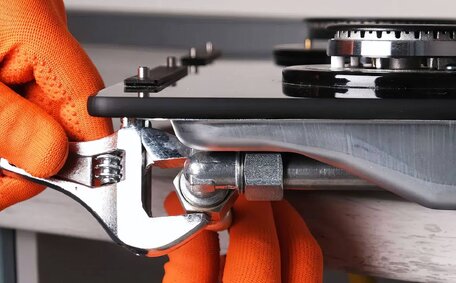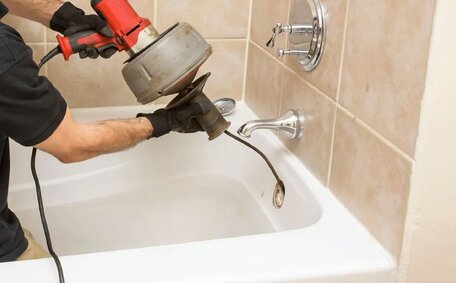
Sustainable Gas Solutions
There are renewable and sustainable gas solutions that can build a greener future. Gas has a key role enabling the transition to renewable energy while reducing emissions.
Read MoreAttracted to the moist, nutrient-rich conditions within sewer pipes, tree roots commonly infiltrate and block drains. Thin root tendrils exploit vulnerabilities in pipes, leading to blockages.
Clay pipes, as well as older concrete ones, are particularly vulnerable, as the material deteriorates over many years of use, allowing more access points for root ingress.
Tree roots can breach pipes’ internal infrastructure and rapidly spread.
Roots within sewer systems can cause significant blockages. As they extend within drain pipes, they access moisture and nutrients, facilitating further growth. Tree roots cause no visible damage above ground, with infiltration symptoms manifesting exclusively below the surface.
Substantial root spread within pipe infrastructure may occur before above ground symptoms like backup appear, underlining the urgency for swift action to prevent severe blockages.
Various signs can suggest that tree roots are obstructing your drainage system:
Catching root intrusions early delivers the optimal chance of safeguarding the pipes and water lines, inclusive of the trees your yard harbours, from the extensive expenses associated with a compromised root system. How do you respond if it appears roots have manoeuvred their way into your pipelines, causing disruptive blockages? Seek professional plumbing services.
Tree roots are drawn to sewer systems due to their abundant moisture and nutrients, which are essential for growth. Roots naturally grow into drainage systems, drawn to the essential water and nutrients these environments provide.
Sewer systems provide water and nutrients that attract tree roots, leading to blockages when root growth is unchecked. Tiny hair-like roots your pipes may encounter, possibly tracing back to trees in your own backyard, can easily infiltrate and cause damage, penetrating cracks or gaps in pipe joints, and then roots then expand rapidly.
Tree roots pose no threat to drainage systems above ground. Beneath the surface it’s a different story; insidiously, roots spread undetected through the very heart of pipe infrastructure, staunchly obstructing water’s natural flow. While old clay or concrete pipes are prone to root invasion, newer PVC pipes with cracks are also vulnerable.
In Australia, one of the most common culprits for roots sewer line blockages are indeed tree roots, notoriously leading the charge in sewer pipe obstructions. Untreated root blockages can worsen, potentially necessitating complete pipe replacement and causing extensive damage. Responding quickly to signs of root infiltration can prevent significant damage through services like pipe relining.
If you suspect that roots are troubling your sewer lines, our team of professional plumbers can apply meticulously designed preventive measures.
There are several preventative measures homeowners can take to prevent tree roots from causing further damage to plumbing systems:
An effective pipe relining service taken early is paramount to halt tree roots before they extensively damage your system. A professional plumber can also relink pipes using pipe relining - an alternative to full drain replacement in cases of root damage.
There are several methods, like professional drain cleaning, available for removing tree roots that have infiltrated drainage systems, depending on the extent of the infestation:
Chemical root killers with copper sulphate can control tree roots within pipes and restore normal drainage. The chemicals work diligently at dissolving roots blocking your pipes, reinstating normal drainage flow. However, avoid chemical drain cleaners that could corrode pipes and exacerbate blockages.
A high pressure jet of hot water from powerful hydro-jet equipment is often the strategy plumbers end up employing to dislodge a tree root blockage in sewer systems and restore drainage. Water at high pressure up to 5000 PSI clears root masses and blockages without damaging your plumbing.
To extract tree roots ensnared within underground pipes or lurking nearby, plumbers at times resort to manual cutting using specialized root cutting tools. Methodical severing of roots curbs their spread and stops them from moving through your drains. CCTV inspections identify the affected areas for root removal.
Following root removal, pipe relining can be undertaken to repair damaged pipes and prevent recurrence without digging up drainage lines. Pipe relining is a trenchless, cost-effective alternative to full drainage replacement.
Confronting tree root damage in drains needs a comprehensive approach. The key steps involve:
After roots have been cleared, epoxy pipe relining is highly effective for restoring pipe function and integrity without the need for excavation. The existing pipe is coated with a protective epoxy barrier that seals cracks and joints vulnerable to root regrowth.
Barriers made using foam sleeves, metal plates or filter fabrics can also be inserted around drainage pipes to obstruct root access. Chemical root inhibitors are another option for protecting pipes.
Embracing these strategies, coupled with thorough drain maintenance, embodies the best way to shield your plumbing against extensive root damage recurrence. Investing in prevention protects property owners from expensive repairs down the track.
Catching plumbing issues early with a plumber’s help can prevent escalation. If the signs of blockages reappear after initial root removal, call a professional plumber immediately to confirm whether regrowth has occurred. The longer invasive roots remain inside pipes, the more one might ask 'how much does this proliferating damage cost to repair?'.
Tree root infiltration into drainage systems can quickly escalate from nuisance to emergency, particularly once they’ve navigated into critical pipe areas. Knowing when to enlist professional help is critical to prevent the extensive and costly damage roots your drain can lead to.
As premier plumbing experts in Sydney and Inner West, Inner West Plumbing Pty Ltd is equipped to address tree root invasions and ensure your pipes remain clear.
If you notice any warning signs, call Inner West Plumbing at 1300 349 338. Our expert plumbers are on standby 24/7 to address issues using the best solutions, from hydro-jetting to pipe relining.
For milder issues, such as sporadic blockages or slow drains, consider water heater inspections and CCTV drain checks to detect early root intrusions. Catching invading roots when they first appear inside pipes allows easier removal before major damage occurs underground.
We’re here to maintain and improve your plumbing infrastructure should tree roots pose a threat to your home or business. Protect your property and prevent expensive repairs - email or call us at the first signs of trouble.
There are renewable and sustainable gas solutions that can build a greener future. Gas has a key role enabling the transition to renewable energy while reducing emissions.
Read MoreGas leaks can cause headaches, nausea, breathing issues and even carbon monoxide poisoning. Long term exposure poses serious health risks. Call us to fix any gas leak and avoid the dangers - Inner West Plumbing
Read MoreTree roots are the #1 cause of blocked drains as they invade pipes seeking water. Call Inner West Plumbing on XXXX XXX XXX to inspect & clear roots.
Read MoreInner West, NSW
We will call back as soon as possible.




